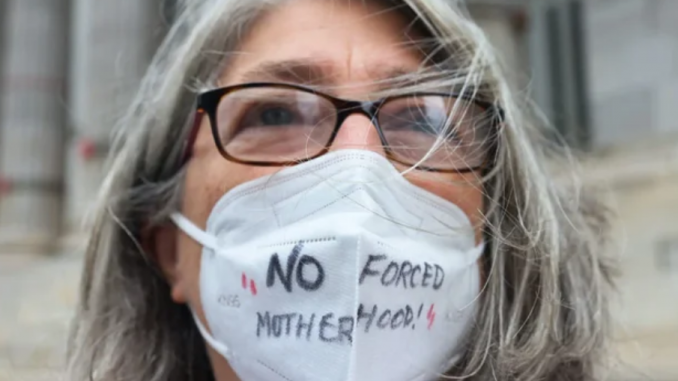
A worker at a Houston Planned Parenthood clinic told ABC News that about 70% of the women who called for abortion care this week had to be turned down.
On Wednesday, SB 8, or the Texas Heartbeat law, which bans abortions after six weeks – before most women know they’re pregnant – went into effect.
A Planned Parenthood news release said 85-90% of Texans who obtain abortions are at least six weeks into pregnancy.
Doris Dixon, who oversees patient access at the clinic, said her clinic has turned into a “crisis center.”
“People don’t know where to go,” she told ABC News.
Dixon told ABC a woman came in for a check-up on Wednesday when the law went into effect and learned she was five and a half weeks pregnant. However, the woman also tested positive for the coronavirus and therefore won’t be eligible for an abortion after she’s done isolating.
“To hear her beg for someone to help her was hard, she was begging,” Dixon told ABC News. “For me, I was trying very hard not to cry but the tears were coming down, they were there.”
The clinic worker also told ABC News she was concerned the law could lead to people trying to self-abort and she’s already seen one woman who tried to terminate her own pregnancy after the law went into effect.
Dixon said she’s upset with the new law: “I’m actually angry because this is an attack on people’s constitutional rights to seek these services. And it’s between them and their doctors,” she told the outlet.
On Friday, abortion providers were granted a temporary restraining order against anti-abortion group Texas Right to Life and its associates.
SB 8 allows private citizens to sue anyone who “aids or abets” an abortion. Those who win their case could win a minimum of $10,000 in addition to attorney fees. The restraining order bans the anti-abortion group from suing abortion providers and health care workers.
In granting the order, Judge Maya Guerra Gamble of the Texas District Court for Travis County said the law created a “probable, irreparable, and imminent injury in the interim” to abortion providers if the law is enforced by private citizens.
However, this week, the Supreme Court refused to block the restrictive law.
*story by Business Insider